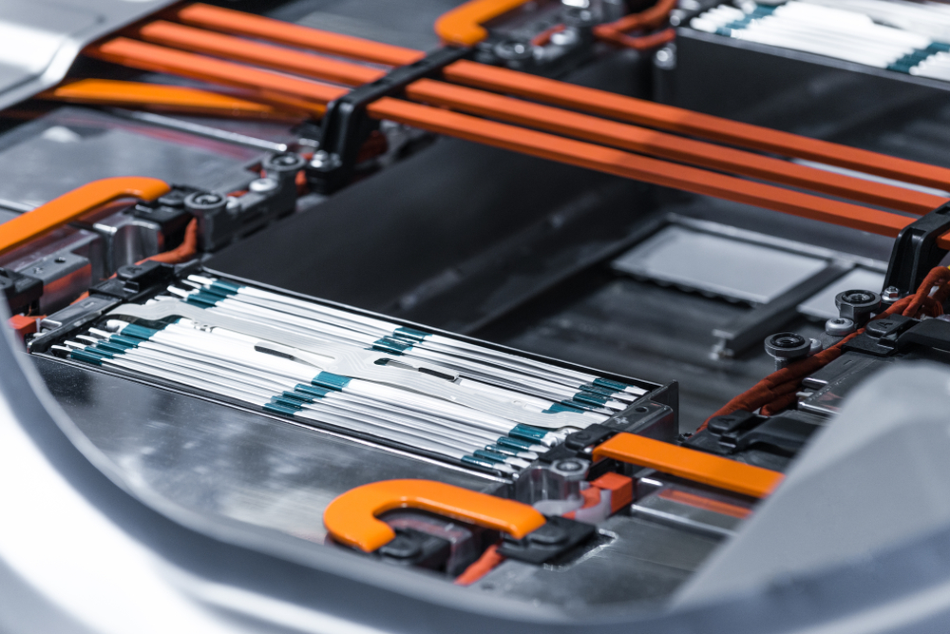
Image Credit: Sergii Chernov/Shutterstock.com
By the end of 2020, it is estimated that 102,000 tons of Li-ion batteries will be retired from EVs annually, rising to 7.8 million tons by 2040. This exponential growth means that consideration must be given to what to do with the retired batteries.
Electric vehicles are becoming increasingly common on the roads worldwide, and their presence is only likely to grow. As a result, there is increased demand for lithium-ion (Li-ion) batteries that power them. But as the first wave of such batteries near the end of their life, there is the question of what to do with the most expensive component of an electric vehicle; should they be repurposed or recycled?
Powering an Electric Vehicle
Electric vehicles (EV) are powered in one of two ways: they are either a battery electric vehicle (BEV), powered solely by a battery, or a plug-in hybrid electric vehicle (PHEV), which combines a gasoline or diesel engine with an electric motor and large rechargeable battery.
Li-ion batteries function for around eight to 10 years and can no longer satisfy the power requirements of an EV, i.e., the loss of capacity limits the vehicle’s driving range.
Recycling End-of-Life Electric Vehicle Batteries
The default option is to recycle batteries to extract their raw materials – particularly cobalt - for reuse.
Electric vehicle and clean energy company Tesla claims all its batteries will be directly recycled. The global Li-ion battery recycling market will be worth an estimated $31 billion annually by 2040.
Recycling is a crucial solution to ensuring raw material supply security. Recovering metals such as lithium, cobalt, nickel, manganese, copper and aluminum offer manufacturers protection from supply disruption and a way to avoid price fluctuations while generating additional revenue streams. It is, however, necessary to extract large volumes of high-quality materials to make the process worthwhile.
In many countries, extended producer responsibility (EPR) means OEMs are responsible for retired batteries. This can simplify the recycling process, providing a specific collection network where professionals handle EV batteries. This system is an essential factor in how efficient the process will be - a low volume of cells or high collection costs could damage the economy of recycling.
In theory, recycling is the least sustainable measure in a circular economy and should be a last resort when the battery cannot be utilized further. In practice, it is not simple. The recycling value chain must be considered from a lifecycle perspective – from mining and processing to battery materials and production, battery usage to recycling, or reuse and recycling in some cases.
Lithium iron phosphate (LFP) is a popular battery chemistry employed by Chinese EV manufacturers in particular. Such batteries have a low recycling value as they contain few very high-value metals. In this instance, giving the batteries a second life is a more attractive option, as they have a better lifecycle and safety performance than other batteries. This is crucial if being repurposed for stationary energy storage.
Although all batteries will need to be recycled at some point, the variety of designs and high voltage of EV battery packs means safe disassembly can be complicated and time-consuming. Furthermore, most recycling capacity is in China, although there is increasing interest from other countries.
Yes, we can RECYCLE EV batteries. Here's how | Fully Charged
Video Credit: fullychargedshow/YouTube.com
Repurposing Electric Vehicles Batteries
Unlike those used in consumer electronics, when an EV battery reaches the end of its useful life in vehicle service, it still retains between 70 and 80% of its original capacity. This means they could have a second life in a less-demanding application before they are ultimately recycled.
Manufacturers such as Nissan, Renault, BMW and Volkswagen are enthusiastically exploring scenarios in which retired batteries are utilized in applications ranging from residential to commercial and grid-scale energy storage.
Second-life batteries represent a considerable value opportunity across both the automotive industry and energy storage sector. The potential value of these batteries is impacted by their design and use in their previous life, how they are collected and utilized in their second life application, in addition to their recycling value.
Many technological, economic and regulatory challenges have been identified, and companies are developing means of improving the value of a second-life battery. Technologically speaking, repurposing an EV for another use will not affect its recycling – it will just delay the process, while potentially causing a knock-on effect on the logistics and economics of recycling.

 How Could a Lithium-Ion Battery Capture CO2 Emissions?
How Could a Lithium-Ion Battery Capture CO2 Emissions?
To Recycle or Repurpose?
Many batteries are now reaching the end of their useful life as a power source for EVs, and their number is only going to increase as the presence of these vehicles increases.
The decision to recycle or repurpose depends on the value of the battery pack itself. LFP batteries have a low precious metal value, so they are best repurposed, while those with high proportions of metals such as cobalt might be best recycled.
Regardless of whether or not they have been given a second life after they have served their useful purpose in an electric vehicle, EV batteries ultimately face the same destiny – to be recycled.
References and Further Reading
Jiao, N (2020) Second-life Electric Vehicle Batteries 2020-2030. [Online] ID Tech Ex. Available at: https://www.idtechex.com/en/research-report/second-life-electric-vehicle-batteries-2020-2030/681 (Accessed 2 July 2020).
Holland, A. & Jian, N. (2020) Li-ion Battery Recycling: 2020-2040. [Online] ID Tech Ex Available at: https://www.idtechex.com/en/research-report/li-ion-battery-recycling-2020-2040/751 (Accessed 2 July 2020).
Harper, G et al. (2019) Recycling lithium-ion batteries from electric vehicles. [Online] Nature. Available at: https://www.nature.com/articles/s41586-019-1682-5 (Accessed 2 July 2020).
Disclaimer: The views expressed here are those of the author expressed in their private capacity and do not necessarily represent the views of AZoM.com Limited T/A AZoNetwork the owner and operator of this website. This disclaimer forms part of the Terms and conditions of use of this website.